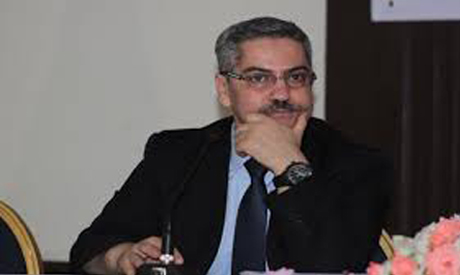
Dr. Chafik Sarsar, head of the Tunisian Independent High Electoral Commission (Instance Supérieure Indépendante pour les Élections – ISIE)
As Tunisians vote in parliamentary elections on Sunday, Ahram Online talks to Dr Chafik Sarsar, the head of the country's electoral commission, about the challenges he has faced and the criticism heaped upon him by many in the political sphere.
Are you satisfied with the electoral process? What were the main challenges facing the Independent High Electoral Commission (Instance Supérieure Indépendante pour les Élections – ISIE) in its preparations for the parliamentary and presidential elections?
Actually, it is a complex process. But this election poses two key challenges. The first is the ability to organise elections across five continents and 46 countries for voters living abroad (18 seats and more than 300,000 voters).
The second challenge is that we are required by the constitution to hold parliamentary and presidential elections before the end of the year. I can say that the ISIE has been able to organise the process in a satisfactory manner.
Was the preparation time for these important and complicated elections too short?
ISIE members were selected in January. We then immediately began the formation of its structures, including subsidiary bodies in each electoral ward. The period was really tight and short.
But criticisms of the work, efficiency and fairness of the ISIE have been unprecedented compared to elections for the Constituent Assembly in 2011?
We are not in 2011. Enthusiasm and faith that the revolution will usher in a better life for Tunisians has faded. Really, there is disappointment in the current situation and in the political elite. All these frustrations cast doubts that were not present in 2011. Moreover, the country has slipped into partisan and political bickering, especially between those who have no hope of winning. It seems that they have chosen to discredit and attack the ISIE and the entire democratic process, some have even called for an election boycott.
How much did you benefit from the experience of the previous electoral commission headed by Kamel Jendoubi?
There are several strengths that we tried to build upon, such as certain technical measures. On the other hand, we tried to avoid "imperfections" and weak points that were apparent, for instance in the design of the ballot paper and in voter registration. We also avoided allowing non-registered voters to vote at the last minute because it opens the door to the possibility of voting more than once or manipulating voters.
How do you evaluate the number of violations during this electoral campaign?
The electoral commission filed 4,500 reports and referred many of them to the general prosecutor for investigation.
How many violations were referred to the prosecution?
They were 23.
What happens if violations affect the election results?
The law gives the commission the right to cancel the results of any winning list that has committed violations.
The law also gives the "court of accounts" the right to monitor the financing of electoral lists.
If their spending exceeded the limit, the government can cancel the victory of this list.
I have heard complaints that people with party affiliations are supervising the election... what is your reply?
The problem is that fifty percent of Tunisians are now skeptical of the other fifty percent. The high commission cannot dismiss a supervisor based on undocumented accusations.
However, we have already excluded 20 members from the subsidiary bodies after we were sure of the seriousness of the complaints.
Have you succeeded in applying the law that prevents members of ousted president Ben Ali's party from running in the election?
Out of the twenty members who were excluded from the subsidiary bodies, some of them were members of Ben Ali's party.
Is the presence of 27 candidates in the presidential elections due on the 23 November a burden on the electoral commission?
It is indeed a burden on the electoral process and on the voter. On the other hand we can absorb the situation, considering the conditions of the democratic transition that have led to having an unstable political scene.
Does the candidacy of interim President Moncef impair the neutrality of the elections?
Not necessarily, considering that the principles of the election law prohibit exploiting public resources in favour of any party, the commission definitely is keen to observe it.
Do you expect a runoff in the upcoming presidential elections?
Yes, to a great extent.
Short link: